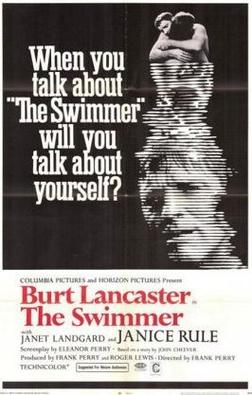Lists












12 Books
A gateway to Existential Literature
Sort by:
Recent Desc
Books that explore the idea of 'existential dread.'
Liked by
More lists by TasteDive Official



All Together Now: Frankenstein in Bits
Yorgos Lanthimos returns to theaters with his newest film POOR THINGS, starring Emma Stone as Bella Baxter, the reanimated corpse of an adult woman with a baby brain who traipses Victorian society and leaves her mark on it. Based on Alistair Gray's novel, which in turn takes inspiration from Mary Shelley's FRANKENSTEIN, Lanthimos' film takes the themes of Victorian repression and the search for ultimate God-like power to its maximalist end point. To celebrate the release of the film and its premiere at the 61st New York Film Festival, here are some of the best bits of the Frankenstein myth put together.
October 2023
0
@TasteDive



Toni Awards: Best of Toni Collette
For nearly four decades, Toni Collette has become one of our most celebrated actors, delivering intense, empathetic, and intriguing performances, finding the depths of her characters and leaving audiences breathless. You can't talk about hitmaking movies like MURIEL'S WEDDING or the horror movie that put A24 on the map HEREDITARY without her impassioned, startling presence. Able to transform her elastic face whatever the role, Collette continues to defy our expectations.
April 2023
0
@TasteDive



A Doll's House: Doll Cinema
List includes: Toy Story, Mannequin, Manifesto
April 2023
0
@TasteDive



Attend the Tale: Six Degrees of Sweeney Todd
From the pages of penny dreadfuls in the late 1800s to Broadway stages, audiences have loved nothing more than the murderous barber Sweeney Todd and his partner in cuisine crime Mrs. Lovett for hundreds of years at this point. As a revival of Stephen Sondheim and Hugh Wheeler's seminal adaptation of the tale, SWEENEY TODD: THE DEMON BARBER OF FLEET STREET, arrives in New York with Josh Groban as the razor wielding avenger, take a look at the various iterations of Todd that have appeared across film and literature.
April 2023
0
@TasteDive



Paltrow Pictures: Gwyneth on the Screen
As Gwyneth Paltrow stands trial for a ski hit-and-run, the Goop empress and daughter of Bruce Paltrow and Blythe Danner has re-entered the cultural conversation as a reminder of the unquestionable power, and absurdity, that movie stars once had. In the '90s, she was a luminous and effervescent princess of Hollywood, capable of casting a spell on audiences as William Shakespeare's muse, Jane Austen's feisty heroine, and even the everlasting star in the mind of a now jaded Peter Pan. Look back on the actor's exceptionally shiny past with some of her best roles.
March 2023
0
@TasteDive



Everyone Everywhere: After Best Picture
The Daniels' EVERYTHING EVERYWHERE ALL AT ONCE, about a first gen Chinese immigrant mother at the end of her rope during a tax audit, and A24 made history at the 95th Academy Awards with the most "above the line" wins of any studio in the Oscars' history, while Michelle Yeoh became the first Asian actress to win the Academy Award for Best Actress. Here are a few more multiverses you can jump into after you've seen, or rewatched, the incomparable movie.
March 2023
0
@TasteDive



Soak Up the Sun: Pool Movies
The dog days of summer have arrived, as evidenced by the humidity that clings to the air, the sweat that drips from everyone's bodies the moment they step outside, and the desperate desire to be by a pool! Lounging, tanning, cooling off as things heat up. Here are some great poolside movies.
August 2022
1
@TasteDive



Labor of Love: Sex Work on Film
The history of sex work and sex workers' lives in cinema is a fraught one, at times caked in nasty stereotypes and revealing the most insidious points of view in society that sustain policies that marginalize those members of society. But some films, such as the ones on this list, offer insight and nuance, while unpacking ideas about women's autonomy, the marketplace of desire, and how people's identities function in capitalist societies.
May 2022
1
@TasteDive



Easy, Tiger: What to Watch for Lunar New Year
Commonly referred to as Chinese New Year, Lunar New Year is celebrated in many countries in Asia, including Korea, Thailand, and Vietnam. Lunar New Year, a crucial part of Chinese culture, announces the beginning of the first new moon of the lunar calendar and a way for families and communities to celebrate their centuries old relationship to their elders and their heavenly deities. Tied to 12 animals as Zodiac signs, this year is the Year of the Tiger: brave, fierce, and a force against evil. Here are some things you can watch for celebrate the New Year!
January 2022
1
@TasteDive